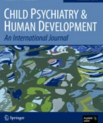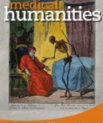Social interaction alters self-identity: An adapted paradigm for measuring horizontal learning
Interesting article submitted to the Journal of Personality and Social Psychology
Abstract
Self-concepts mediate our judgements about the social world, acting as interpretive lenses that may behave differently in psychiatric cohorts. Self-concepts are co-constructed obliquely across generations, vertically through parents, and horizontally between peers. Active self-concepts fluctuate across situations while stable self-concepts do not. Although horizontal transmission continues throughout the lifespan, changes to self-concepts have been challenging to experimentally capture. New materials for inducing horizontal transmission and differentiating between self-concept modalities overcome previous methodological obstacles; psychometric testing and three experimental studies evaluate their reproducibility and applications. Study 1: After establishing efficacy of the new materials, a convenience sample of 62 W.E.I.R.D. university students participated in a semi-scripted social interaction designed to mimic real-world horizontal transmission, wherein a friendly stranger expressed contrary self-concepts. Active but not stable self-concepts changed from baseline. Study 2: To assess reproducibility in an ecologically-valid cohort, findings were replicated in 43 randomly sampled adults from diverse backgrounds recruited from the general population. Study 3: Recent literature reports that patients with schizophrenia show hyper-rigid or hyper-flexible responses. When 27 patients were compared with 27 matched controls, patients maintained conflicting self-concepts simultaneously by assuming the self-concepts of their interlocutor while maintaining their own. Subsequent analyses identified four flexibility phenotypes with distinct patterns in patients. These studies are the first to successfully induce and differentiate changes to active versus stable self-concepts through social interaction. Social interactions constitute the foundations of social and cultural learning, and findings demonstrate that even brief social interactions induce change. Implications of these findings span the social sciences.
Article
Crafa, D., Schiff, J., & Brodeur, M.B. (2019). Social interaction alters self-identity: An adapted paradigm for measuring horizontal learning. Journal of Personality and Social Psychology, in review.
Contact
Daina Crafa, Assistant Professor
Interacting Minds Centre



